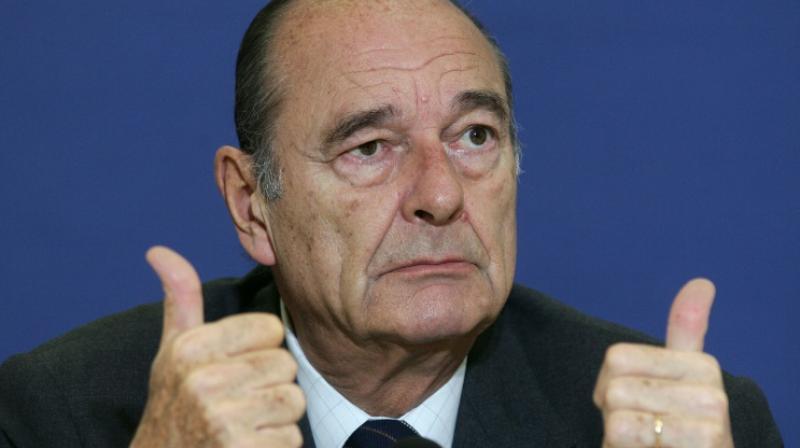Jacques Chirac’s tenure changed the dynamics of Indo-French relations

Jacques Chirac, former President of France, who died recently in Paris, evoked great public emotion in France and some in India for those whose chose to remember him for his hand in shaping Indo-French bilateral relations. He was President of France for two terms from 1995 to 2007.
He was the architect of the “Look East Policy” which focussed on Asia. Interestingly, several articles recently published in French newspapers have mentioned that his foreign policy heavily impacted China and later India. His tenure changed the dynamics of Indo-French relations. Earlier, the economic reforms carried out by the Congress government in 1991 that liberalised and opened up the Indian market to foreign investors were taken note of by France. India in the late 1990s went on to become an emerging economy with information technology becoming a key driver of its economy. In 1997, India’s growth rate was 7 per cent and in 2007-2008, it had achieved a growth rate of 10 per cent. The rapid growth rate paved the way for better integration of India into the world economy, and France, among other countries, noticed it, especially for its ability to provide low-cost IT-enabled services. The huge domestic market in India was also a major attraction.
When Chirac took over as President of France, there was already a base created for dialogue with India. Leaders who had been part of the previous government such as Alain Juppé, who became Prime Minister in 1995 and Hubert Védrine, who became minister of external affairs in 1997, were already predisposed towards a continuous dialogue with India and this helped Chirac when he took over as President of France.
The turning point was 1998 when two events shaped the destiny of the two nations and cemented their ties. The first was that Chirac came as chief guest at India’s Republic Day parade to mark India’s 50th year as an independent state. It was a symbolic hand of friendship from India to France and it was expected to follow through in greater gains in bilateral ties between the two nations. Chirac arrived with the largest business delegation ever thereby demonstrating political will to strengthen ties with India. The visit paved the way for an Indo-French strategic partnership that is active till today. The second event was in May 1998 when the Atal Behari Vajpayee government conducted two nuclear tests.
Amongst all Western powers, France was the most understanding of the Indian need and desire to have an independent nuclear policy. France did not join other members of the G8, the European Union and the UN Security Council in their condemnation of the tests. It also did not join Japan and the United States in imposing sanctions on India. This led to further cementing ties between the two countries. India was a de facto, if not de jure, nuclear weapons state and it was practical to see it as one, the French felt in a pragmatic way.
The French under Chirac paved the way for cooperation with India on civil nuclear energy, given India’s track record on non-proliferation. In February 2006, when Chirac visited India again, he was keen to boost economic ties and to strengthen relations with New Delhi, with accent on civil nuclear cooperation. After extensive talks between the then Prime Minister Manmohan Singh and Chirac, India and France issued a declaration on the “development of nuclear energy for peaceful purposes”. France was willing to provide nuclear power plants and nuclear fuel in India. The declaration also laid emphasis on joint nuclear research and training scientists. Importantly, the joint declaration was entirely dedicated to the prospect of nuclear energy cooperation and it listed the Indian and French organisations that were to be involved in the whole process. France meets 90 per cent of its energy needs from nuclear energy and therefore, is a forerunner in the use of nuclear energy for peaceful purposes.
During Chirac’s tenure, educational links between India and France also received a boost. The former French minister for science, education and technology, Claude Allegre, who visited India in 1999, created EduFrance, an organisation which seeks to attract foreign students to study in France. India currently sends 4,000 students a year to France, up from 200 in 1999.
Interestingly, France at the time when Chirac was in power promoted the concept of a multipolar world in which it believed India could play a crucial part. After the end of the Cold War, and the collapse of the bipolar world, the world saw the rise of the United States in what became a unipolar world. However, France believed in a world where power is not concentrated in the hands of one or two nations around the globe. It wanted a world order that is harmonious and just. In this world order, not only rich and powerful nations but also emerging countries such as India would have a say in the way power is distributed across the world. It is a pity the concept did not take off as it should have.

